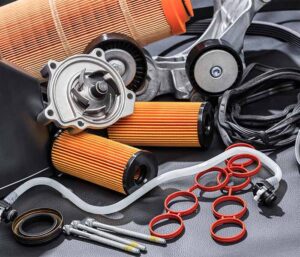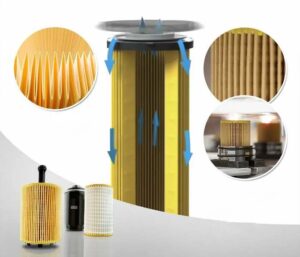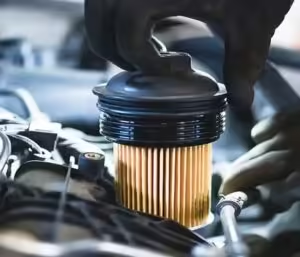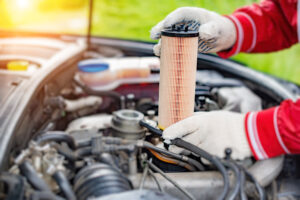Clean Filters, Clean Engine — How Filtration Shapes Vehicle Performance, Longevity, and Efficiency
Introduction: A Small Component, A Big Impact
In the realm of automotive engineering, few components are as undervalued yet as critical as filters. Often hidden from sight, these small devices perform an outsized role in protecting engines, optimizing fuel efficiency, and enhancing driver comfort.
This blog explores the growing importance of automotive filters in modern vehicles, especially as engines become more compact, emissions regulations stricter, and customer expectations higher than ever.
I. What Are Automotive Filters and Why Are They Essential?
Automotive filters are designed to trap contaminants that would otherwise enter sensitive vehicle systems. These contaminants can include:
- Dust, pollen, and airborne debris
- Metal particles in oil
- Water and impurities in fuel
- Exhaust gases and harmful particulates
Without filters, your engine would be vulnerable to wear, corrosion, and inefficiency — leading to poor performance, reduced fuel economy, and even costly breakdowns.
In short: filters are the first line of defense for your engine.
II. The Four Key Types of Automotive Filters
1. Air Filter
Purpose: Filters the air entering the engine’s combustion chamber.
Importance: An engine needs a precise air-fuel mixture for efficient combustion. Contaminated air leads to incomplete combustion, reduced power, and increased emissions.
Symptoms of a bad air filter:
- Decreased acceleration
- Engine misfires
- Black smoke from the exhaust
2. Oil Filter
Purpose: Removes contaminants and sludge from engine oil.
Importance: Clean oil lubricates engine parts, reducing friction and preventing overheating. Dirty oil accelerates engine wear.
When to replace: Typically during every oil change (every 5,000–10,000 km).
3. Fuel Filter
Purpose: Keeps the fuel clean by removing water, dirt, and rust particles.
Importance: Protects the fuel injection system and ensures optimal engine performance, especially critical in diesel engines.
Common signs of a clogged fuel filter:
- Hard starting
- Engine hesitation
- Poor fuel economy
4. Cabin Air Filter
Purpose: Filters the air entering the vehicle’s interior.
Importance: Provides clean air for passengers, blocks allergens, and supports the air conditioning and heating system.
Best for: Drivers with allergies, city driving, or dusty environments.
III. The Dangers of Neglecting Filter Maintenance
Failing to maintain or replace your vehicle’s filters can lead to serious consequences, including:
- Reduced engine lifespan
- Lower fuel efficiency
- More emissions (and failed inspections)
- Uncomfortable or unsafe driving experience
- Expensive repair costs
According to industry research, up to 60% of early engine failures can be linked to improper oil or air filtration.
IV. Choosing the Right Filter: What to Look For
A. Filtration Efficiency
Top-tier filters offer 99%+ particle filtration, especially down to 5 microns or smaller. Precision is key.
B. Durability Under Harsh Conditions
Good filters must handle:
- Extreme heat (up to 135°C)
- High humidity (98%+)
- High pressure and vibration
C. Material Quality
From filter paper to rubber seals, the material quality affects sealing, flow rate, and long-term performance.
D. Certifications to Check
Look for:
- ISO/TS 16949: Automotive quality systems
- ISO 9001: General quality management
- CE, RoHS: Environmental and safety compliance
- OEM approvals for specific car brands
V. Filter Technology in the Modern Era
Modern vehicles require advanced filters to meet the demands of:
- Turbocharged engines
- Hybrid and electric powertrains
- Low-emission standards
- Longer service intervals
Notable Advances:
- Nanofiber filter media: Captures ultra-fine particles
- Multi-layer filtration: Combines coarse and fine layers
- Anti-bacterial cabin filters: Improves interior air quality
- Water-separating fuel filters: Especially for diesel and humid areas
VI. The Role of Automotive Filters in Global Markets
Growing Aftermarket Demand
- Latin America: Rising vehicle age drives filter replacement demand
- Middle East: Harsh desert conditions shorten filter lifespans
- Southeast Asia: High humidity challenges air and fuel filters
- Europe: Tight emissions regulations demand high-quality filtration
Distributor Opportunity
Filters are recurring revenue products. Commercial vehicles can need 3–4 filter changes per year, while passenger cars need 1–2 changes annually. For resellers and OEMs, this means predictable income and repeat customers.
VII. Case Study: Why Global Buyers Trust Dunwei Filtration
One standout example in the filtration industry is Dunwei, a fast-growing filter brand with a reputation for excellence. Here’s why:
✅ 1. Technological Superiority
- ISO 9001-certified manufacturing
- Filtration precision: 99.97%@5μm
- Customized filters for hot, dusty, and humid regions
✅ 2. Transparent Margins
- Clear pricing tiers for distributors, retailers, and OEM clients
- Profits up to 70% margin for bulk orders
✅ 3. Market Readiness
- Over 3,200 pulse test cycles completed
- 32% repeat purchase rate
- Products adapted for 7+ global markets
Dunwei’s smart supply chain and regionalized product designs make it a trusted partner in both emerging and mature markets.
VIII. Future Outlook: Smarter, Sustainable Filters
Green Initiatives
With increasing pressure on sustainability, filter manufacturers are developing:
- Reusable filters
- Biodegradable components
- Packaging from recycled materials
Smart Filter Technology
Some brands are piloting IoT-connected filters that alert users when replacements are needed, using real-time data such as air pressure, temperature, and particle load.




